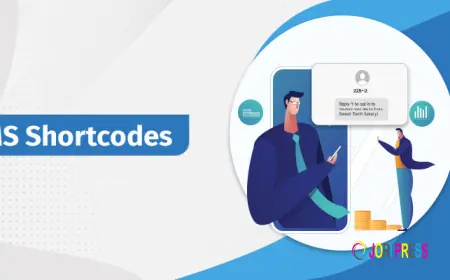KYC in the Fintech Industry — A Comprehensive Guide
The financial technology (fintech) industry has revolutionised how individuals and businesses manage money.KYC in the Fintech Industry — A Comprehensive Guide
From digital wallets and mobile banking apps to investment platforms and peer-to-peer lending, fintech has transformed the financial landscape. However, with the rise of digital financial services, ensuring customer identity verification has become critical to prevent fraud, money laundering, and data breaches. This is where KYC (Know Your Customer) comes into play.
In this guide, we will dive deep into how KYC, Digital KYC, and Aadhaar eKYC are used in the fintech industry, why they are essential, and how they shape compliance and customer trust.
What is KYC in the Fintech Industry?
KYC, or Know Your Customer, refers to the process of verifying the identity of customers before they can access financial services. For fintech companies, KYC is not only a regulatory requirement but also a trust-building mechanism that ensures secure and transparent operations.
Traditionally, KYC involved paperwork, physical document submission, and in-person verification. But with the digital shift, fintech companies now leverage Digital KYC and eKYC solutions to make onboarding faster, safer, and more efficient.
Why KYC is Important for Fintech
-
Fraud Prevention: Prevents identity theft, account takeovers, and fraudulent financial activities.
-
Regulatory Compliance: Helps fintech companies meet guidelines set by authorities like the RBI, SEBI, and global regulators.
-
Customer Trust: A robust Digital KYC process builds credibility and reassures customers about data safety.
-
Faster Onboarding: Automated KYC solutions speed up account creation and access to services.
-
AML & CFT Measures: KYC supports Anti-Money Laundering (AML) and Counter-Terrorist Financing (CFT) initiatives by monitoring suspicious activities.
Types of KYC Used in Fintech
1. Traditional KYC
Involves the physical submission of documents like PAN, Aadhaar, and utility bills at a branch or office. While secure, it is slow and paper-intensive.
2. Digital KYC
This refers to fully online KYC solutions where customer details are verified digitally using documents, video KYC, or AI-driven verification systems. Digital KYC is now widely adopted by fintechs due to its scalability and convenience.
3. Aadhaar eKYC
A specialised form of eKYC, Aadhaar eKYC enables instant verification using Aadhaar credentials. It allows fintech companies to confirm identity details directly with UIDAI, ensuring both accuracy and compliance.
Regulatory Landscape for KYC in Fintech
In India, fintech companies must comply with the KYC guidelines laid down by:
-
Reserve Bank of India (RBI): Regulates NBFCs, payment apps, and lending platforms.
-
Securities and Exchange Board of India (SEBI): Governs fintechs offering investment and trading services.
-
Prevention of Money Laundering Act (PMLA): Ensures fintechs implement AML compliance.
Recent amendments have encouraged fintechs to adopt Video KYC and Digital KYC to improve compliance without compromising speed.
How Digital KYC Works in Fintech
-
Document Upload: Users upload scanned copies of Aadhaar, PAN, or other IDs.
-
Face Verification: AI-driven facial recognition matches customer selfies with ID documents.
-
Database Verification: Cross-checking details with government databases like UIDAI for Aadhaar eKYC.
-
Video KYC: A live video interaction between the customer and the compliance officer for verification.
-
Approval & Onboarding: Once verified, the customer gains instant access to fintech services.
Benefits of KYC for Fintech Companies
-
Faster Onboarding: eKYC reduces verification time from days to minutes.
-
Reduced Costs: Digital KYC eliminates paperwork and physical infrastructure expenses.
-
Scalability: Fintechs can onboard thousands of users simultaneously with automated systems.
-
Fraud Reduction: Stronger verification lowers the risks of fake accounts.
-
Regulatory Compliance: Avoids penalties and ensures smooth business operations.
Challenges in KYC for Fintech
-
Data Privacy Concerns: Handling sensitive documents requires strict security measures.
-
Tech Integration: Implementing AI and blockchain-based KYC systems may require significant investment.
-
User Resistance: Some customers hesitate to share Aadhaar details due to privacy concerns.
-
Regulatory Changes: Frequent updates in KYC norms can be challenging for fintechs to adapt quickly.
Use Cases of KYC in Fintech
-
Digital Lending Platforms: Use Digital KYC to instantly verify borrowers and reduce default risks.
-
Payment Wallets & UPI Apps: Ensure safe onboarding of customers through Aadhaar eKYC.
-
Robo-Advisors & Investment Apps: Use KYC to authenticate investors before providing portfolio services.
-
Insurance Tech: Enable instant policy issuance with eKYC Services.
-
Cross-Border Payments: Implement Digital KYC for international remittances and compliance with AML laws.
Future of KYC in Fintech
The future of KYC in fintech lies in AI-driven, blockchain-powered, and biometric-based verification systems. With rising cyber threats, fintechs will increasingly adopt solutions that combine security with customer convenience.
Key trends include:
-
Video-based KYC expansion
-
AI-powered fraud detection
-
Blockchain-led KYC sharing between institutions
-
Enhanced Aadhaar eKYC adoption across sectors
Conclusion
KYC is no longer just a compliance checkbox for fintechs—it is the backbone of trust, security, and customer satisfaction. By adopting eKYC, Digital KYC, and Aadhaar eKYC, fintech companies can accelerate onboarding, meet regulatory obligations, and protect themselves against fraud.
As the fintech industry continues to grow, robust KYC frameworks will remain essential for sustainable and secure digital financial ecosystems.
What's Your Reaction?
 Like
0
Like
0
 Dislike
0
Dislike
0
 Love
0
Love
0
 Funny
0
Funny
0
 Angry
0
Angry
0
 Sad
0
Sad
0
 Wow
0
Wow
0














































